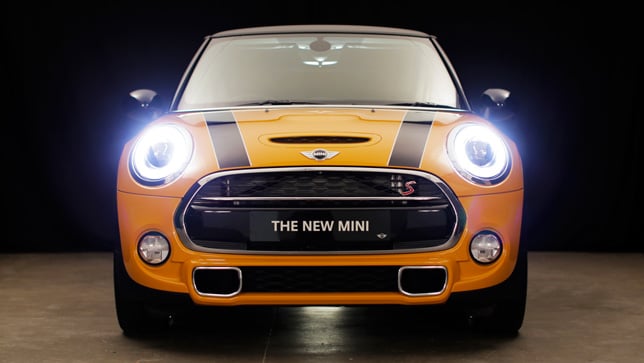Mass customisation "can be the future of fashion," says Knyttan co-founder
Dezeen and MINI Frontiers: Ben Alun-Jones of Knyttan explains how customers can create bespoke knitwear at the company's "factory of the future" and claims mass customisation is transforming the role of designers (+ movie).
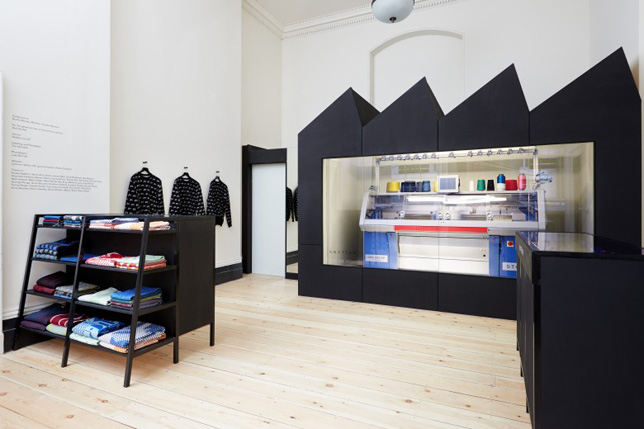
Knyttan, which Alun-Jones co-founded with Kirsty Emery and Hal Watts in 2013, offers the opportunity to customise a jumper or scarf design via a web app, and have it produced to order at the company's factory and shop at Somerset House in London.
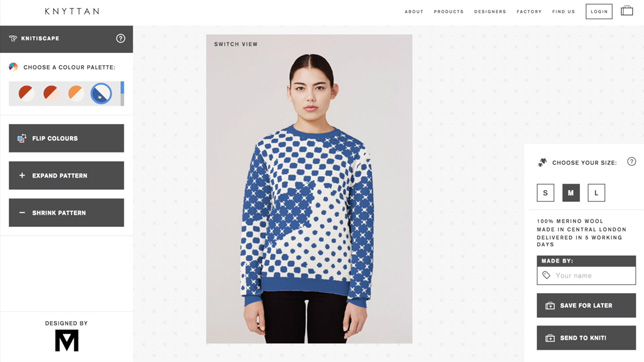
Knyttan works with a range of different designers to create "style guides" that customers can then customise via the app to make bespoke pieces. UK graphic designer Kate Moross, for example, created a range of geometric patterns for the brand, which customers can manipulate in different ways to create almost limitless variations.
"You can move around to your favourite part of the image, you can zoom in to a piece of detail that you really like and you can say, 'I want it in this different colourway,'" Alun-Jones explains in the movie. "This creates a completely different piece almost every single time."
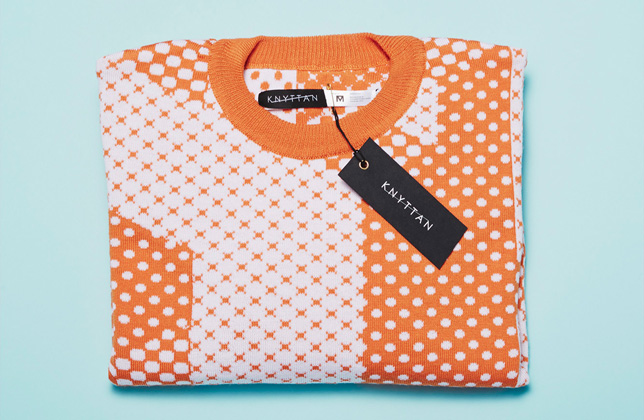
Alun-Jones says that while fashion has traditionally been reluctant to embrace new technology, the success of the shop is forcing the industry to take mass customisation seriously.
"Now we've made the shop and we've shown how it can work, it's totally changed the conversation," he says. "People realise and really understand how this can be the future of fashion."
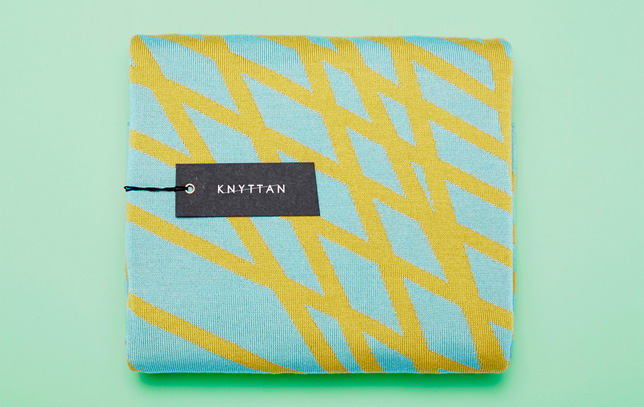
This will have a big impact on the way designers work, Alun-Jones claims.
"Designers are now starting to set style guides rather than finished pieces," he says. "So that's the provocation for designers: what are the key things for your brand and what are the things you're willing to let go of?"
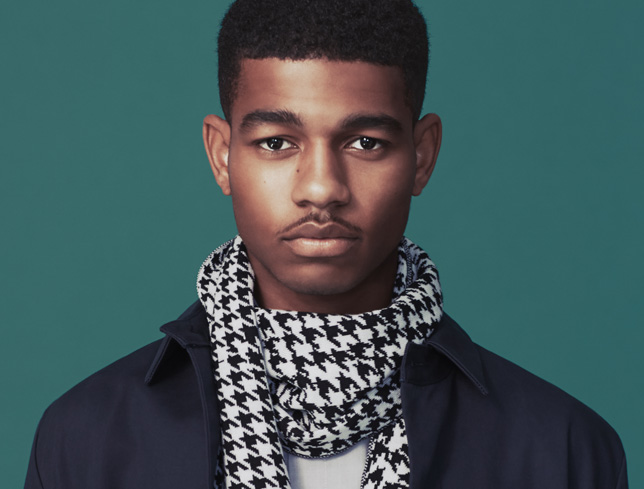
He believes the shake-up will affect designers at all levels throughout the industry.
"Even though [top fashion designers] like Karl Lagerfeld or Vivienne Westwood have very strict controls over how their brand looks, they're also looking to create something new for their customers," he says.
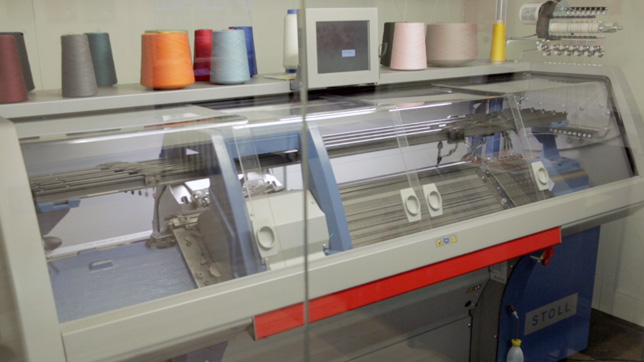
Knyttan uses standard industrial knitting machines, which Alun-Jones claims "produce about 20 to 25 per cent of the world's clothes." The key to making them suitable for mass customisation lies in the software.
"The reason [mass customisation] hasn't happened before in knitwear is that the design tools that exist are very old fashioned, almost like 1980s, 1990s-style CAD," Alun-Jones explains. "We have developed a new piece of software that enables us to make at one minute a red and blue jumper and the next minute a green and white scarf and it just comes out in a flow of completely different items."
He adds: "It's turning these mass-production machines into a unique production method."
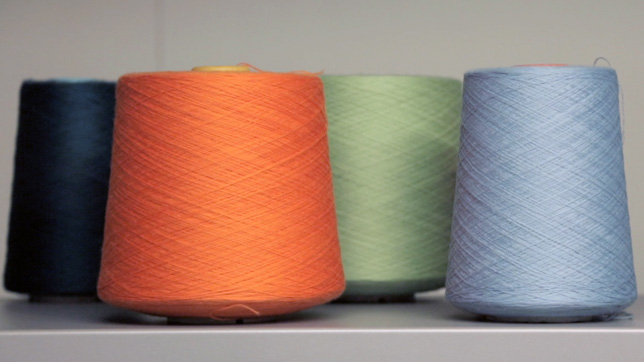
The machines can produce a scarf in less than half an hour, while jumpers – which are knitted in several pieces and then stitched together – take less than two hours to knit.
"Customers can come either to the Knyttan shop here in Somerset House or they can go online [to place an order]," Alun-Jones explains. "Once a customer has placed their order it's converted to the machine code in a matter of minutes. A scarf takes 20 minutes to manufacture. A jumper takes about an hour and a half and these are ready for you to collect."
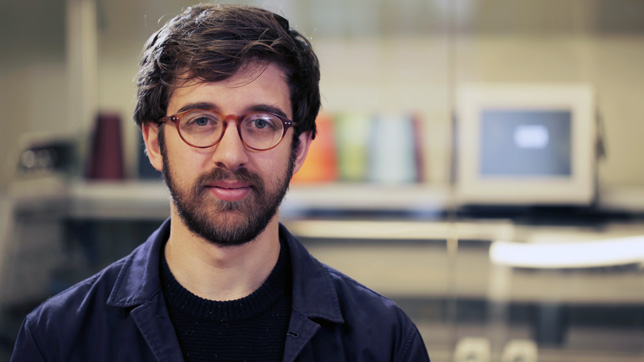
This movie was filmed at Kyttan's shop at Somerset House in London. The music is by UK producer 800xL.
Dezeen and MINI Frontiers is a year-long collaboration with MINI exploring how design and technology are coming together to shape the future.
